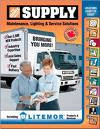Sound familiar? It will to devoted followers of the home products marketplace. Recall Home
 Depot's failed multi-billion dollar attempt at cracking the business markets side of home improvement. The come-uppance that ex-CEO Nardelli and crew experienced was of staggering proportions, and will emerge with time as a classic case in corporate strategic naiveté. Key lesson: never under-estimate how fundamentally different business buyer markets are from consumer markets. Similar products do not make for idential channels!
Depot's failed multi-billion dollar attempt at cracking the business markets side of home improvement. The come-uppance that ex-CEO Nardelli and crew experienced was of staggering proportions, and will emerge with time as a classic case in corporate strategic naiveté. Key lesson: never under-estimate how fundamentally different business buyer markets are from consumer markets. Similar products do not make for idential channels!As Best Buy for Business looks forward, they would be wise to recognise the new B2B competitive arena they'll be competing with including CDW, Cisco, Dell Direct, and the traditional IBM, HP and reseller channels. We would certianly not recommend they model their approach after Staples, Office Depot or OfficeMax. Those three are still struggling to figure out if they're consumer or business market players.
The company indicated that the "small business" strategy will be built from specially selected store employees trained to help business customers navigate their purchasing experience in store and provide introductions to additional business resources available from Best Buy.
Small business growth at Best Buy will only be significant (and profitable) when the company provides real, tangible value added to these new customers. The strategic problem with the Best Buy approach is that it reduces the business buyer market to a "ads, signage and labeling" tactic.

No comments:
Post a Comment